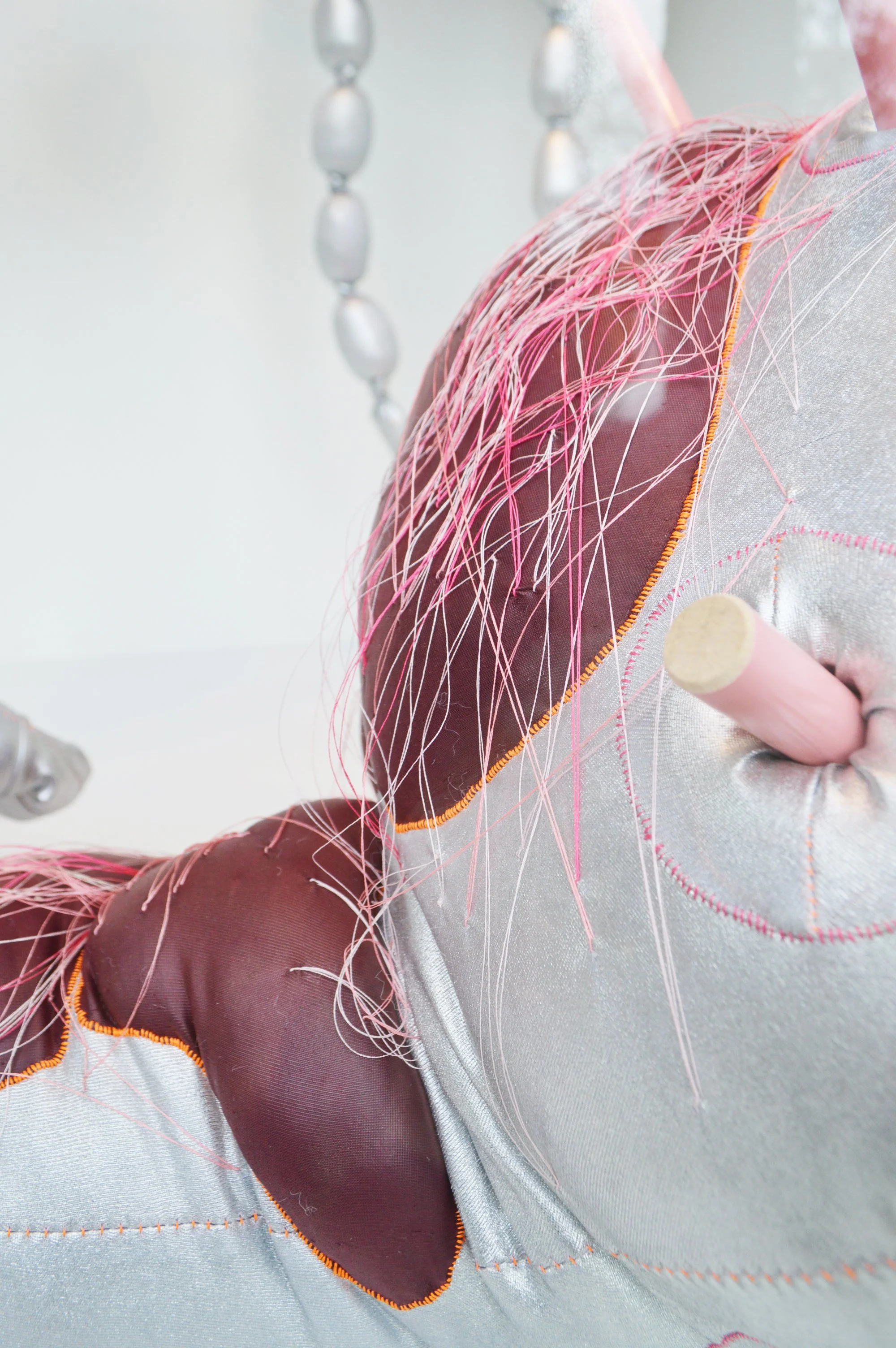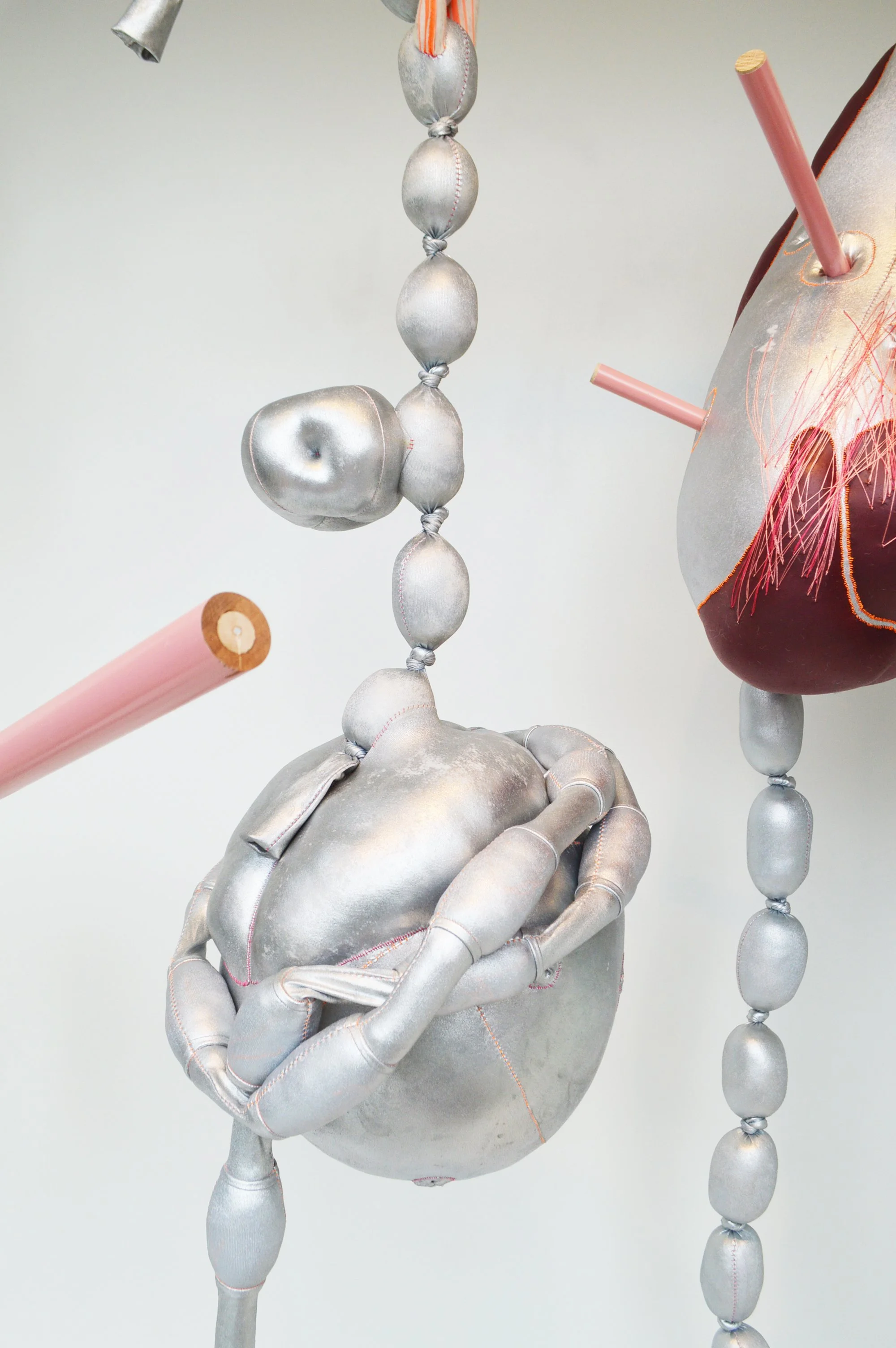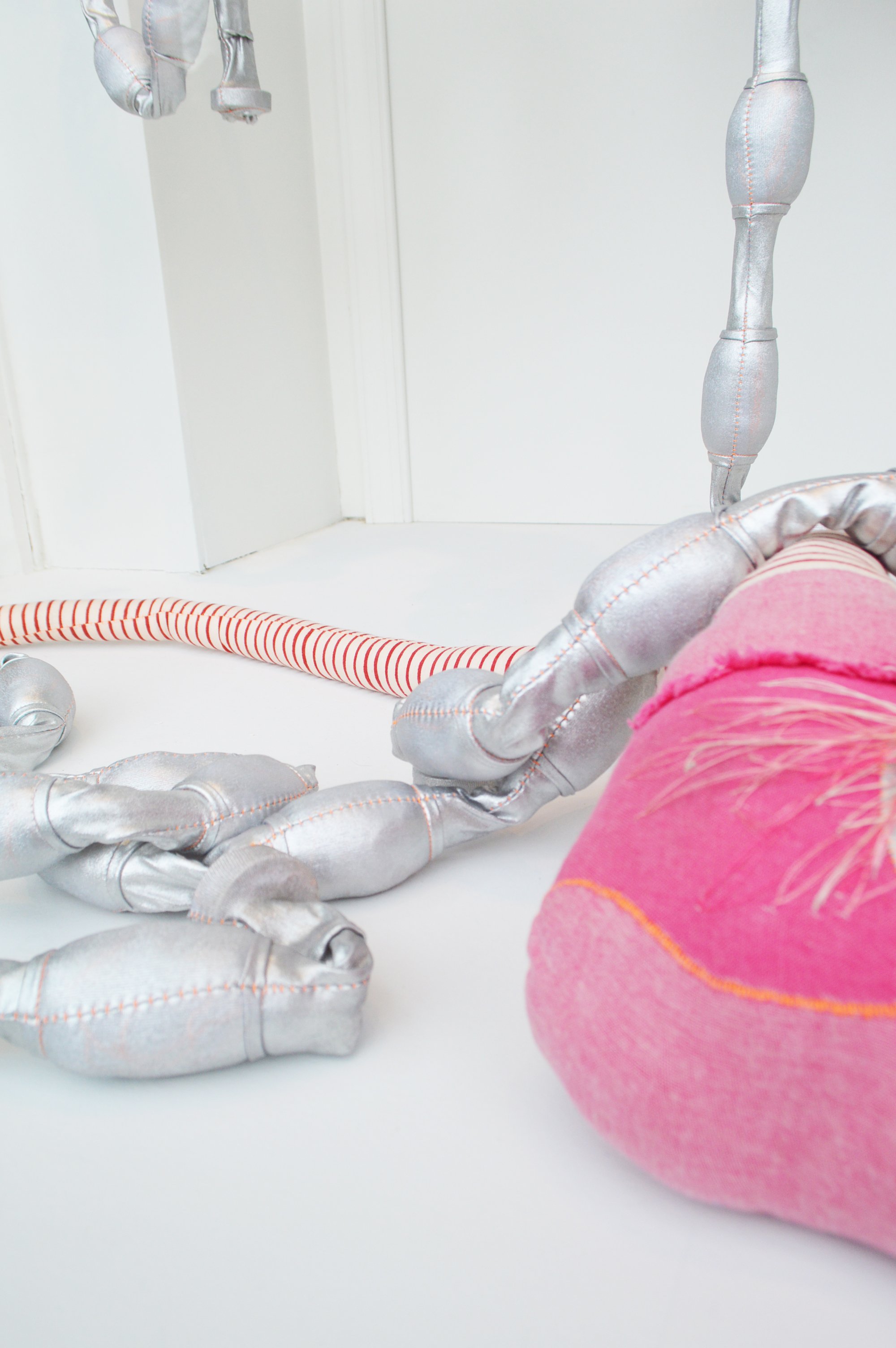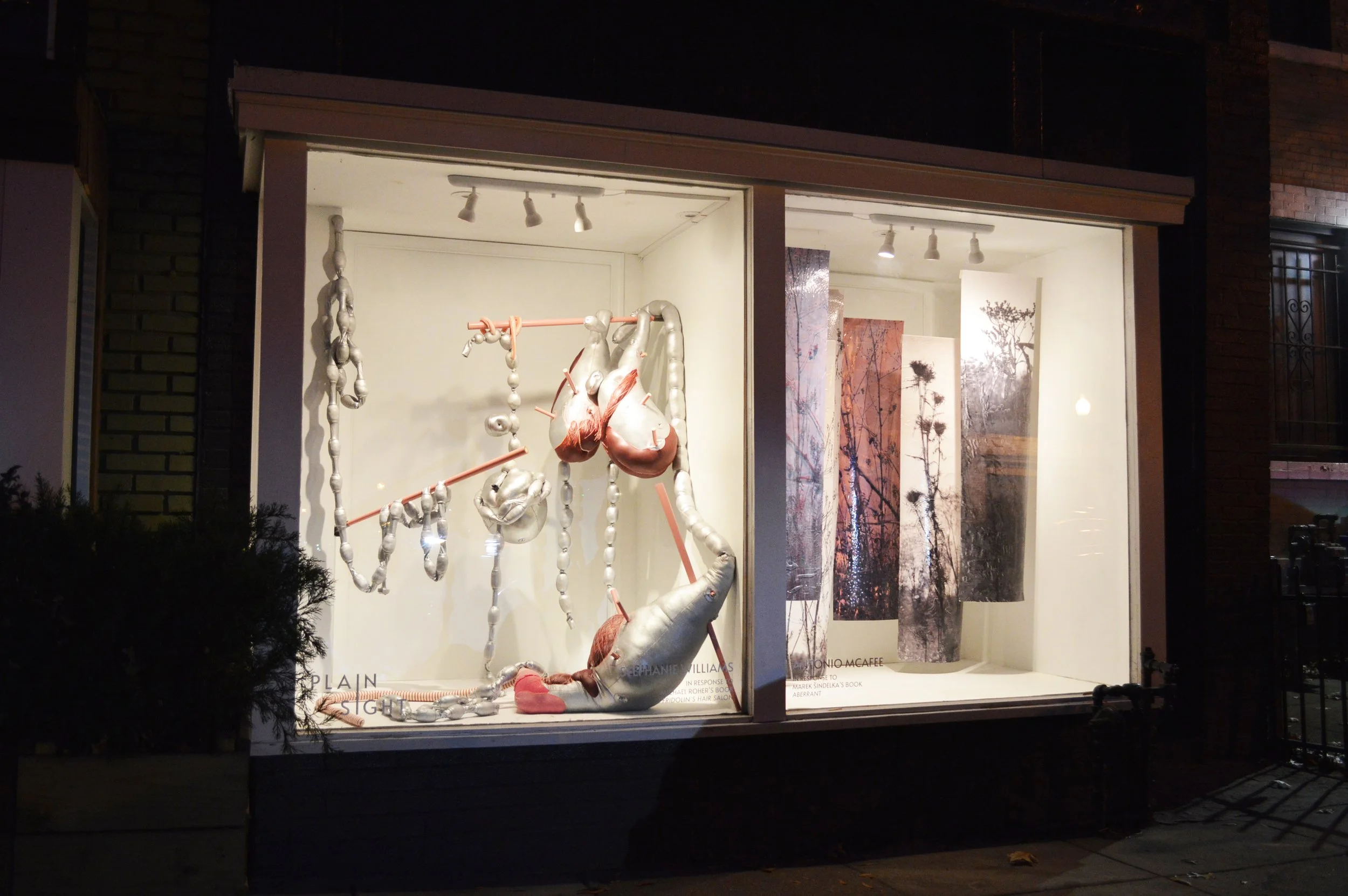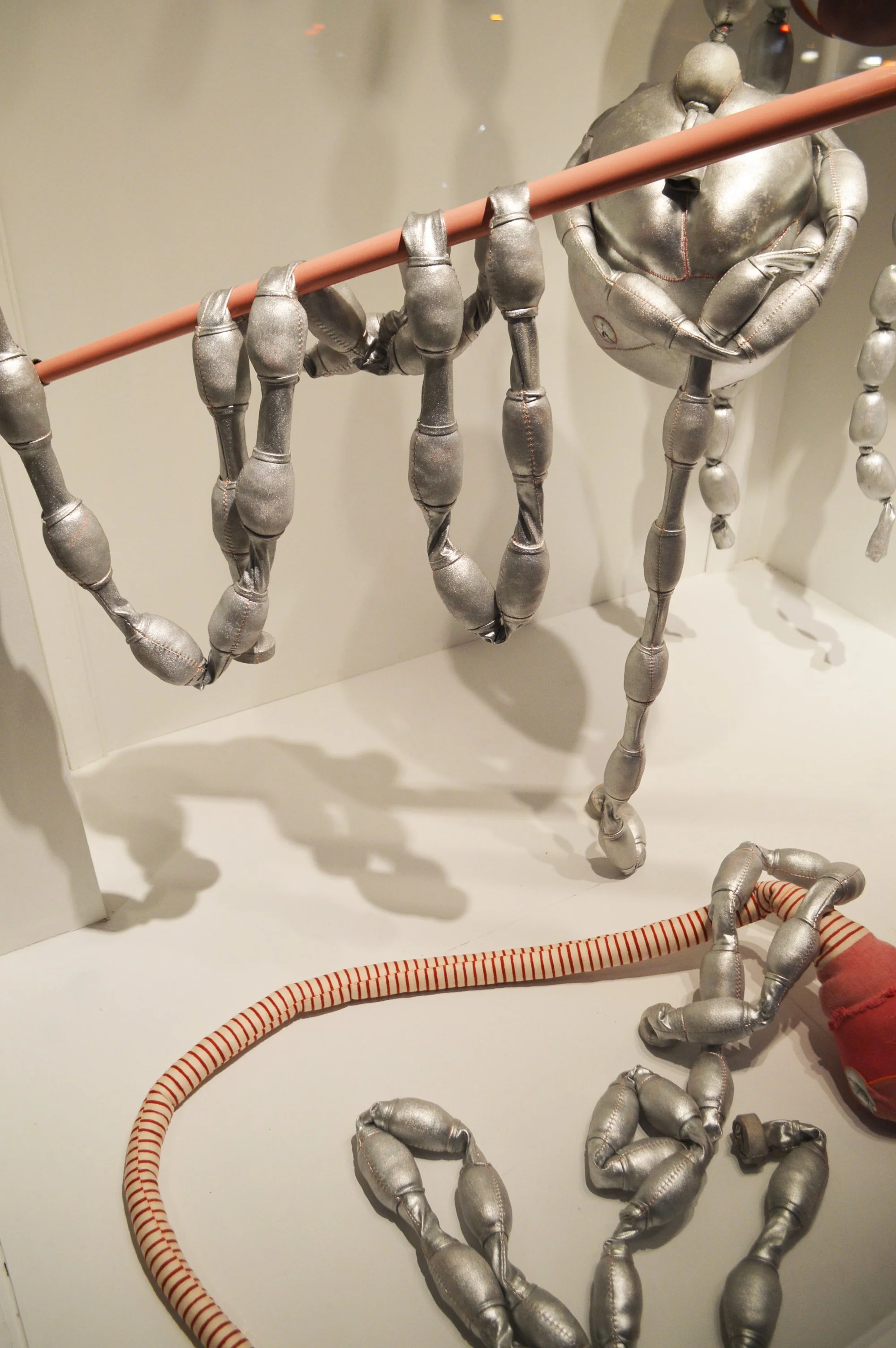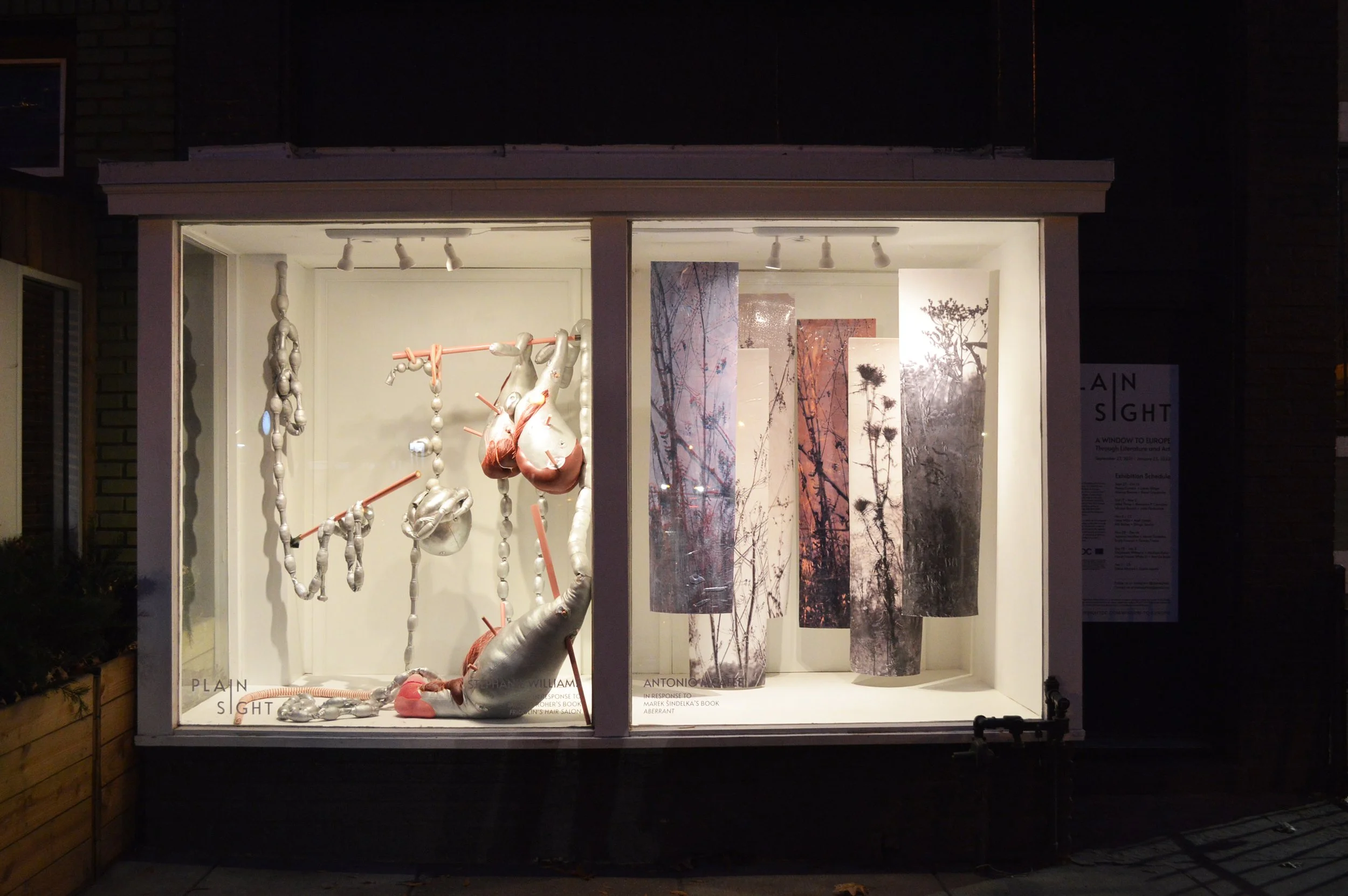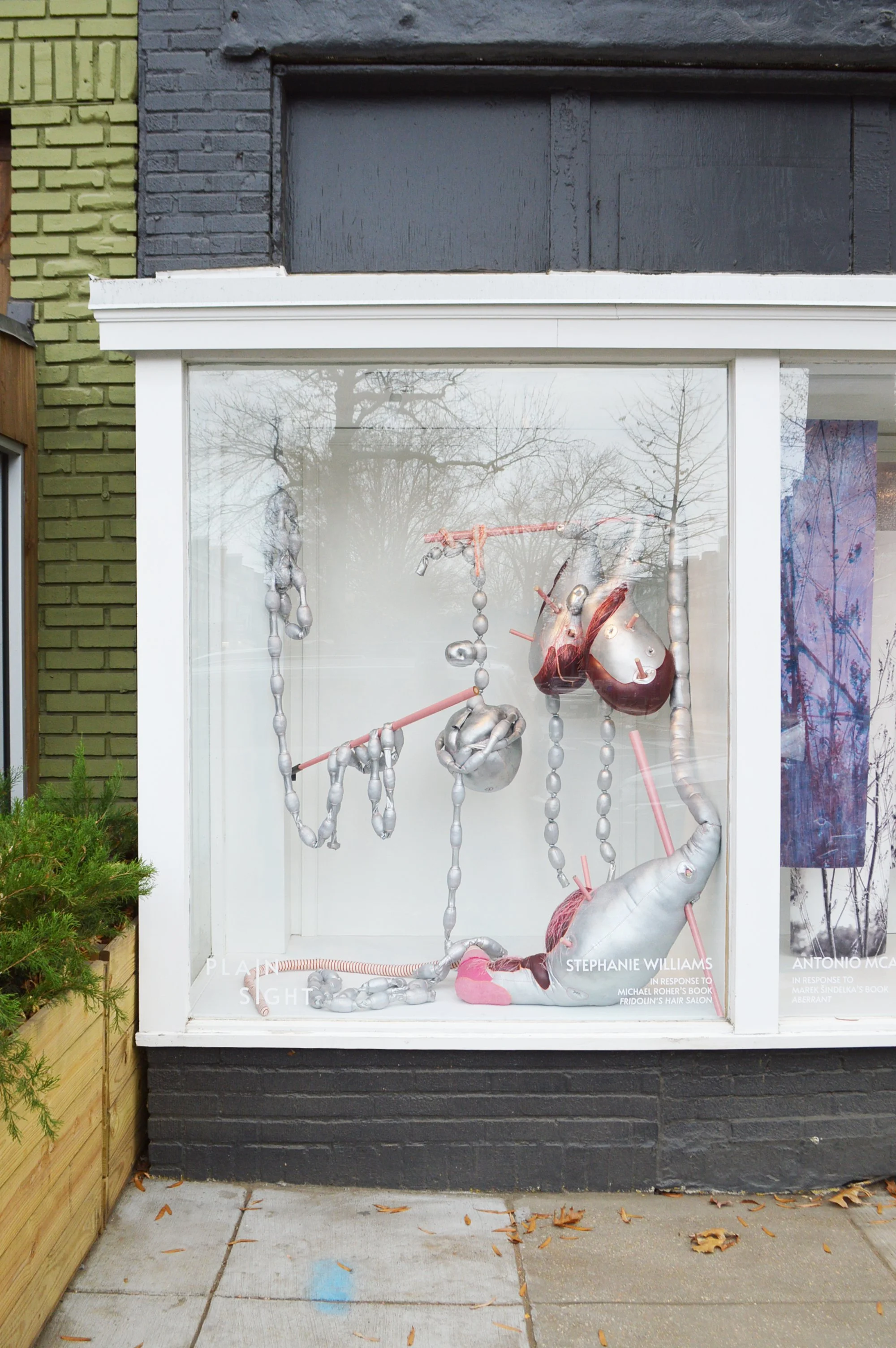A WINDOW TO EUROPE: THROUGH ART & LITERATURE
FEATURING STEPHANIE WILLIAMS
December 18, 2021 - January 3, 2022
Plain Sight DC and the EU National Institutes of Culture in Washington, DC present A Window to Europe: Through Literature and Art, a series of short exhibitions featuring eleven visual artists from the Washington, DC region who will create work in response to eleven books by European writers, as part of the 2021 Europe Readr project. In this exhibition, Stephanie Williams creates work in response to Austrian writer Michael Roher’s book Fridolin’s Hair Salon.
This exhibition is presented in partnership with EUNIC DC, the EU Delegation to the United States, and the Austrian Cultural Forum Washington
ABOUT THE EXHIBITION: The difference between being a body and having a body is that being a body is in direct conversation with one’s physical presence—to shift weight, to breath, to sense—and having a body implies that our bodies stand for some larger context in direct conversation with culture, sometimes becoming a symbolic political object. On a basic scale, COVID-19 called attention to the limitations of our physical bodies: to touch, to breath, to see. On a more complex level, it highlighted social inequity: the violence shown against black communities highlights that there is a difference existing in a body so steeped in politics.
Stephanie Williams' has drawn inspiration from the illustrations in Fridolin Franse Frisiert by Michael Roher, and their ability to communicate the oneness of the individual and the multitude of experiences contained within simultaneously. Williams' is drawn to work that requires care in the form of an accumulation of small intimate gestures, in this case, in the form of a stitch and another stitch and another…emphasizing the seaming together of appliquéd, sewn, silver meaty pieces hung and displayed for visual consumption. The bodies are abstracted, showing small visual resemblances to an orifice here and a protuberance there but never replicating a body exactly. In the abstraction, she is able to contemplate—to hand sew, stitch by stitch—the unfolding of the past year, what politics are steeped within so many of our bodies, an act that contemplates in its satire the ridiculousness of judging literal meat.
Stephanie J Williams is a tinkerer and doodler whose work navigates hierarchies of taste. Williams is an interdisciplinary artist and a DC native. Current themes in her work investigate our complex relationship with food culture, materiality, home and territory, and the subtext of politeness.
Williams received her MFA in Sculpture from Rhode Island School of Design (2007) under a Presidential Scholarship, a Sheridan Teaching Certificate from Brown University (2007), and a BFA in Painting and Drawing from James Madison University (2003). In 2017, Stephanie was included in Fictions, part of the Studio Museum of Harlem’s F-show exhibitions. Additional exhibition venues include |’sindikit |, Washington Project for the Arts, The Delaware Contemporary, Grizzly Grizzly, the Everhart Museum, and Laurence University’s Wriston Art Center with reviews in The New York Times, Village Voice, Huffington Post, and The Washington Post. Williams received a fellowship from the DC Commission on the Arts & Humanities (2019), was a Sondheim Finalist (2019), and a Toby Devan Lewis Fellow (2007). She was a resident fellow at the Corporation of Yaddo (2018), Virginia Center for the Creative Arts (2016), ACRE Projects (2015), The Wassaic Project (2014), Elsewhere Collaborative (2014), and the Vermont Studio Center (2006).
Michael Roher (1980) trained as a social education worker in Vienna and later taught acting and circus skills for children and young adults. He is a self-taught visual artist. He has worked as a freelance author and illustrator of children’s books since 2010. His works have received numerous awards, including the Austrian Children’s and Young Adults’ Book Prize (2010) and the Romulus Candea Prize (2010), both of them for the children’s book Fridolin Franse Hair Salon. Since 2012, he has been on the IBBY Honour List.
A Window Through Europe
This exhibition is part of A Window to Europe: Through Literature and Art, a series of short exhibitions featuring eleven visual artists from the Washington, DC region who are creating work in response to eleven books by European writers, as part of the 2021 Europe Readr project. Featured artists are Hoesy Corona, Alanna Reeves, Mike Thron, Michal Gavish, Julie Wills, MK Bailey, Antonio McAfee, Emily Fussner, Stephanie Williams, Lionel Frazier White III, and Sobia Ahmad.

